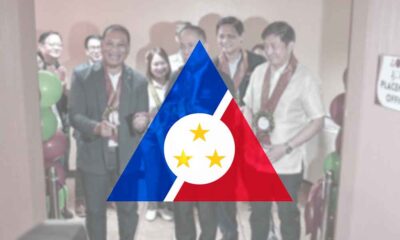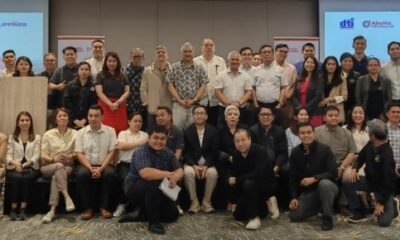News
Con-Com Eyes ‘Regulating’ Political Dynasties
While Congress has yet to pass a law regulating political dynasties, President Rodrigo R. Duterte’s consultative committee (Con-com) has begun contemplating its own provisions to regulate them.
During its meeting on Wednesday, the Con-com, the body tasked to review the 1987 Constitution, agreed to adopt “strong, self-executing provisions to regulate political dynasties”.
This, after Con-com member and De La Salle University Political Science Professor Julio Teehankee, made a presentation which showed the extent of the domination of political dynasties, particularly at the local level.
The current Constitution carries a provision banning political dynasties, but leaves it up to Congress to pass an enabling law.
It was noted during the meeting that the same constitutional ban and the imposition of term limits are among the reasons to blame for the proliferation of old and emerging dynasties.
Teehankee, chair of the Con-com subcommittee on political reforms and leveling the playing field, explained that the consequence of term limits “hastened the development of political dynasties.”
“Nauwi sa pagpapamana ng posisyon (It has resulted to inheriting positions). It hastened the generational shift among the political clans,” Teehankee said.
He also stressed that if the Con-com plans to restructure and reboot the political system, there is a need for “all the players to start from the same starting line.”
“So if ever one would argue that his or her political family is really accepted by the people, then let’s all start at a level playing field. And let the people decide eventually under the new rules of the game,” he added.
The Con-com’s proposed regulation for political dynasties will cover prohibition for a family member to succeed or replace another member who is an incumbent public official, for members of one family to hold multiple positions, and for members of one family to run simultaneously for multiple positions.
To date, members agreed to apply the prohibition up to the second degree of consanguinity and affinity but have yet to finalize the particulars of every prohibition for every position at different levels — local, regional or state, and national.
One study, led by Con-com chairperson and former Chief Justice Reynato Puno and former budget secretary Salvador Enriquez Jr., showed at least 295 political families who control power in various regions — with Metro Manila having the most number with 31.
The regions with the most number of dynasties apart from NCR are Central Luzon with 21, Calabarzon with 20, Bicol Region with 15, Western Visayas with 12, Mimaropa with 11 and Central Visayas with 10.
Presidential Spokesperson Harry Roque earlier said that Duterte, whose children are and have been elected officials in his home city of Davao, found nothing wrong with political dynasties since they are elected by the public.
Duterte’s daughter, Sara, is the Davao City mayor.
His son, Paolo, was former Davao City’s vice mayor.
“As far as the President is concerned, the voice of the people is the voice of God. Kung hinalal ng taumbayan ang mga miyembro ng iisang pamilya, karapatan din nila iyon (If members of a political family are elected by the public, that’s their right),” Roque said.
Roque, however, reiterated that political dynasties shall be dealt with by law, despite Congress’ failure to act on it.
“In case there is a provision to prohibit dynasties, and the people will judge for themselves if dynasties should be prohibited,” he added. (PNA)

































